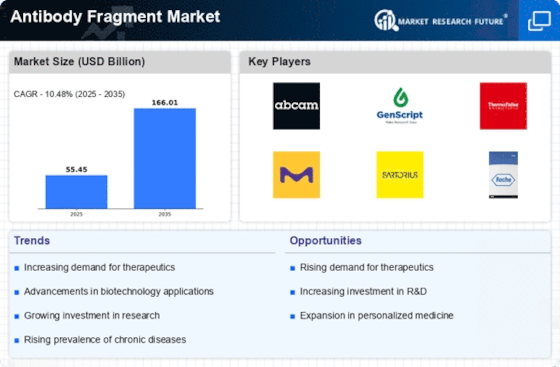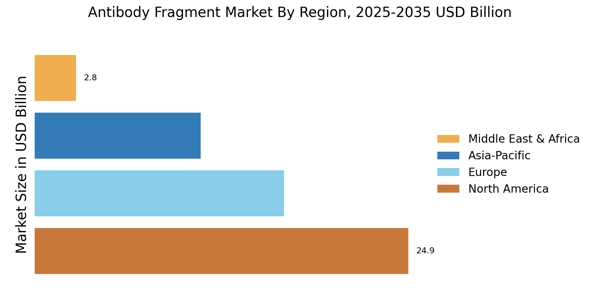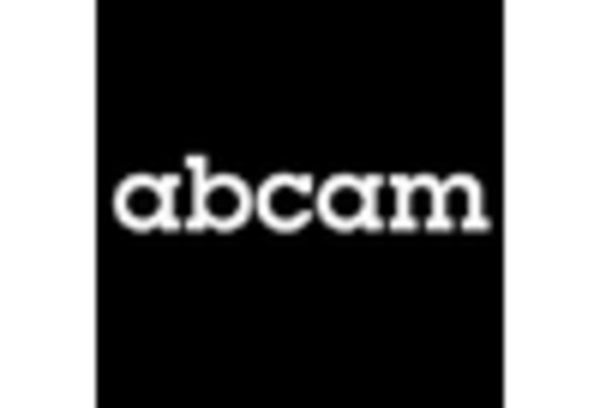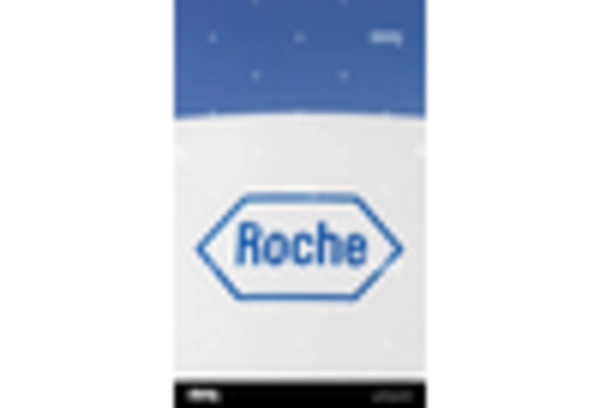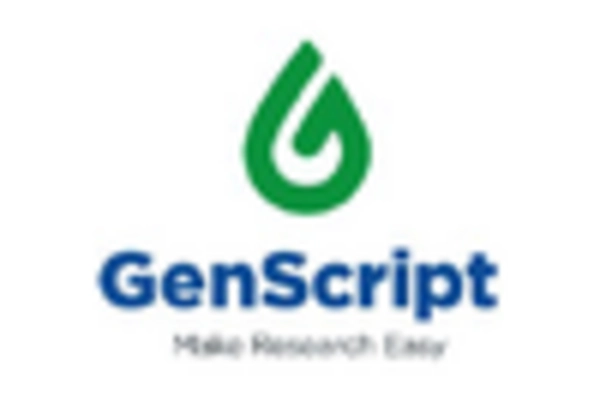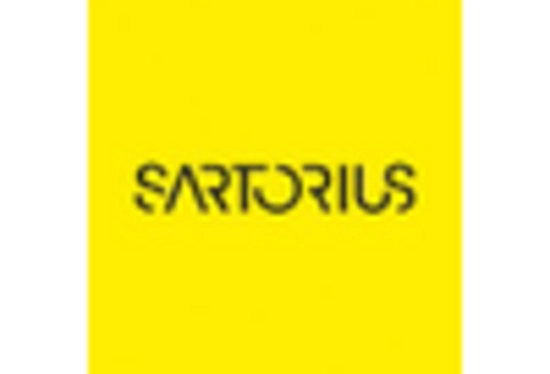Regulatory Support for Biologics
Regulatory support for biologics, including antibody fragments, appears to be a significant factor influencing the Antibody Fragment Market. Regulatory agencies are increasingly recognizing the therapeutic potential of antibody fragments, leading to streamlined approval processes and favorable guidelines. This supportive regulatory environment encourages pharmaceutical companies to invest in the development of new antibody fragment therapies. As a result, the market is likely to see an influx of innovative products, enhancing competition and driving growth within the Antibody Fragment Market. The favorable regulatory landscape may also facilitate faster patient access to novel therapies.
Emerging Applications in Diagnostics
Emerging applications of antibody fragments in diagnostics are contributing to the growth of the Antibody Fragment Market. These fragments are being utilized in various diagnostic assays, including immunoassays and imaging techniques, due to their high specificity and sensitivity. The increasing demand for rapid and accurate diagnostic tools is driving innovation in this area. As healthcare providers seek to improve patient outcomes through early detection and monitoring, the role of antibody fragments in diagnostics is likely to expand. This trend suggests a promising future for the Antibody Fragment Market, as it diversifies its applications beyond therapeutic uses.
Rising Prevalence of Chronic Diseases
The increasing prevalence of chronic diseases such as cancer, autoimmune disorders, and infectious diseases appears to be a primary driver for the Antibody Fragment Market. As these conditions become more widespread, the demand for effective therapeutic solutions intensifies. Antibody fragments, known for their specificity and reduced immunogenicity, are increasingly utilized in targeted therapies. According to recent estimates, the market for antibody-based therapies is projected to reach substantial figures, with antibody fragments playing a crucial role in this growth. The ability of these fragments to penetrate tissues more effectively than full-length antibodies enhances their appeal in treating complex diseases, thereby propelling the Antibody Fragment Market forward.
Growing Investment in Personalized Medicine
The growing investment in personalized medicine is a notable driver for the Antibody Fragment Market. As healthcare systems increasingly focus on tailored treatment approaches, the demand for specific and effective therapies rises. Antibody fragments, with their ability to target specific antigens, align well with the principles of personalized medicine. The market for personalized medicine is projected to expand significantly, with antibody fragments being integral to the development of customized therapies. This trend suggests that the Antibody Fragment Market will likely experience robust growth as more healthcare providers adopt personalized treatment strategies.
Advancements in Biopharmaceutical Manufacturing
Technological advancements in biopharmaceutical manufacturing processes are likely to significantly influence the Antibody Fragment Market. Innovations such as improved cell line development, enhanced purification techniques, and the adoption of continuous manufacturing methods are streamlining production and reducing costs. These advancements facilitate the efficient production of high-quality antibody fragments, which are essential for therapeutic applications. The market is witnessing a shift towards more sustainable and scalable manufacturing practices, which could potentially increase the availability of antibody fragments. As a result, the Antibody Fragment Market is expected to benefit from these improvements, leading to a broader adoption of antibody fragment-based therapies.


